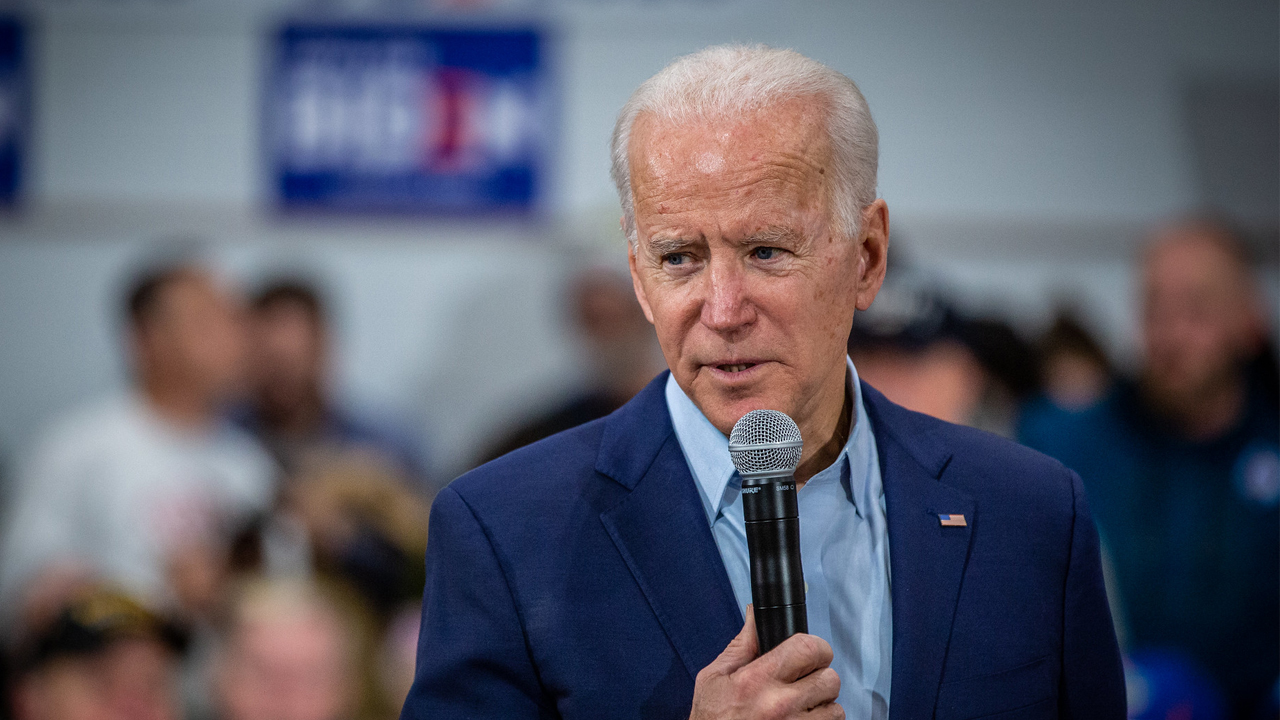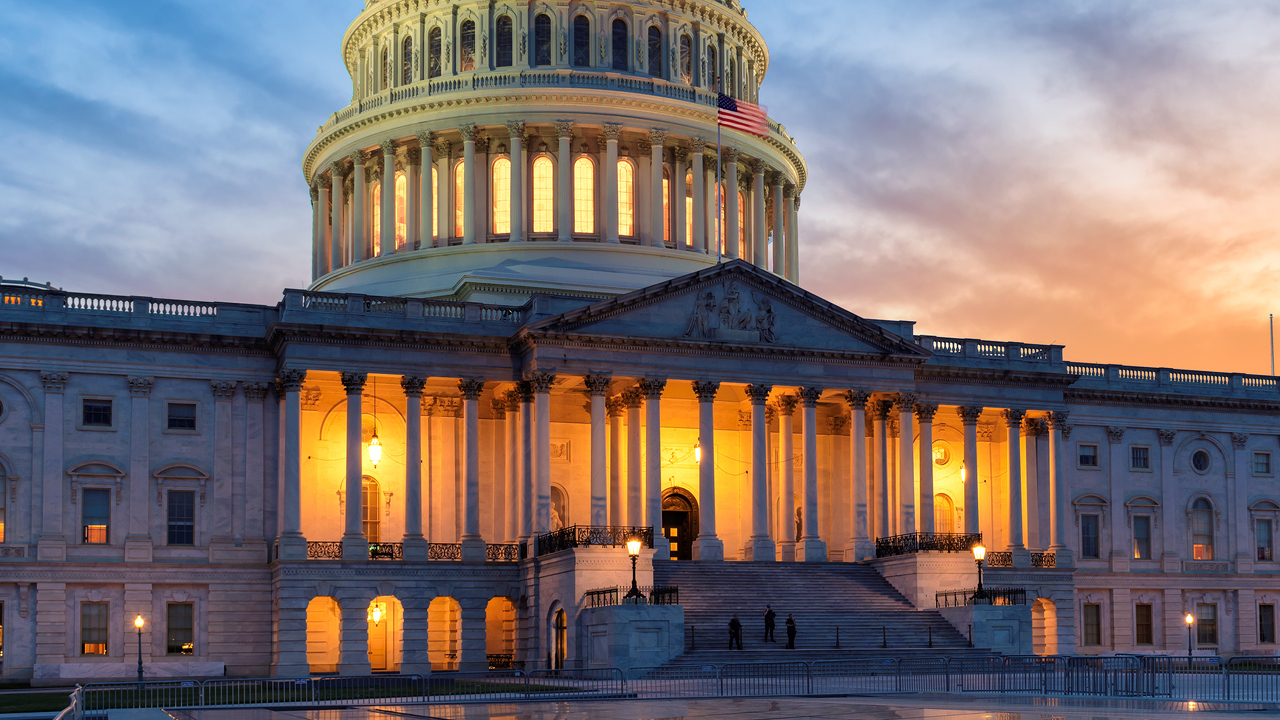The Heartland Institute and Rasmussen Reports conducted a poll of 1,000 likely voters on December 6 – 7, 2020, that shows the vast majority of Americans do not support the radical, globalist Great Reset movement, which aims to upend market economies around the world, including in the United States, replacing them with systems that would give greater power to global elites.
Despite the fact that the incoming Biden administration is on-board with the Great Reset, including Biden’s climate czar John Kerry, most Americans strongly oppose a move that would undermine U.S. sovereignty while increasing global governance.
Below are a few highlights from the poll, which is available in full at the bottom of this article.
When asked, “How influential should international institutions like the United Nations, World Economic Forum, and International Monetary Fund be in creating regulations governing United States businesses?,” only 9 percent of respondents answered “very influential.” Twenty-one percent answered “somewhat influential,” 22 percent answered “not very influential,” 37 percent answered “not influential at all,” and 11 percent said they are undecided.
More importantly, when asked, “How influential should international institutions like the United Nations, World Economic Forum, and International Monetary Fund be in reducing economic inequality in the United States?,” only 13 percent said “very influential,” while 25 percent said “not influential at all.”
Taken together, these results show that less than half of likely voters believe international organizations should have more influence in America’s economic affairs. The results also demonstrate that most Americans reject calls for increased globalism, such as the World Economic Forum’s Great Reset movement.
Among those who said they are familiar with the Great Reset movement, 53 percent of likely voters said they “strongly or somewhat oppose” the Great Reset. Only 22 percent of likely voters said they “strongly favor” the Great Reset, while 20 percent said they “somewhat favor” it.
Further, 3 percent of likely voters believe that “using business resources to pursue social justice causes” should be the main priority of American businesses, which is a core element of the Great Reset agenda. On the other hand, 44 percent of likely voters said U.S. businesses should focus on “providing individual consumers with high quality products and services at the lowest prices.”
National Survey of 1,000 Likely Voters
Conducted December 6-7, 2020
By The Heartland Institute and Rasmussen Reports
1* Are you familiar with the Great Reset movement, a global economic strategy in response to the pandemic that seeks to change the priorities of capitalism?
35% Yes
41% No
24% Not sure
Interesting Crosstabs:
- 52% of government workers said they are familiar with the Reset, the highest of any employment demographic. (70% of government workers who had heard of the Great Reset said they support it, by far the highest level of support for the Reset. The next closest was people who work for a “private company,” with 43% support.)
- The ideological group most likely to be familiar with the Great Reset was conservatives (44%), followed by moderates (31%) and liberals (23%)
2* (Answered by 350 Likely Voters who have heard of the Great Reset movement) Do you strongly favor, somewhat favor, somewhat oppose or strongly oppose the Great Reset movement?
22% Strongly favor
20% Somewhat favor
10% Somewhat oppose
43% Strongly oppose
4% Not sure
Interesting Crosstabs:
- 76% of Republicans say they do NOT favor the Great Reset. About 3% weren’t sure.
- 72% of Democrats said they favor it.
- 67% of “other” party affiliations say they do NOT favor the Great Reset.
3* Do you have a very favorable, somewhat favorable, somewhat unfavorable or very unfavorable impression of the United Nations?
21% Very favorable
34% Somewhat favorable
19% Somewhat unfavorable
17% Very unfavorable
9% Not sure
Interesting Crosstabs:
- 66% of government workers said they have a “very favorable” or “somewhat favorable” impression, the highest of any employment demographic tested.
- 77% of respondents who said socialism is better than a “free-market economic system” also had a “very favorable” or “somewhat favorable” impression of the U.N.
4* How influential should international institutions like the United Nations, World Economic Forum, and International Monetary Fund be in reducing economic inequality in the United States?
13% Very influential
31% Somewhat influential
18% Not very influential
25% Not at all influential
14% Not sure
Interesting Crosstabs:
- 65% of government workers said “very influential” or “somewhat influential,” the highest of any employment demographic tested.
5* How influential should international institutions like the United Nations, World Economic Forum, and International Monetary Fund be in crafting United States policies meant to address climate change?
19% Very influential
30% Somewhat influential
15% Not very influential
28% Not at all influential
8% Not sure
Interesting Crosstabs:
- ***Important Note: In a separate survey conducted with the same group at the same time as this one, less than 39 percent of all respondents said they believe BOTH that climate change is primarily caused by humans and “federal or state governments [should] require people to engage in activities that will lower carbon-dioxide emissions.” (This strongly indicates that “influential” here for many people does not include regulations.)
- 66% of government workers said “very influential” or “somewhat influential,” the highest of any employment demographic tested.
6* How influential should international institutions like the United Nations, World Economic Forum, and International Monetary Fund be in creating regulations governing United States businesses?
9% Very influential
21% Somewhat influential
22% Not very influential
37% Not at all influential
11% Not sure
Interesting Crosstabs:
- Not a crosstab, but note that only about 30% of all respondents said “very influential” or “somewhat influential,” showing the vast majority of Americans do not want international institutions involved in U.S. affairs. (58% said they don’t think they should be influential.)
- 57% of government workers said “very influential” or “somewhat influential,” the highest of any employment demographic tested by far. (Next closes was “private company” employee, at 37%.)
7* What should be the highest priority for businesses in the United States….earning a profit to benefit shareholders or owners, providing individual consumers with high quality products and services at the lowest prices, providing good benefits and pay to employees, climate change or using business resources to pursue social justice causes?
13% Earning a profit to benefit shareholders or owners
44% Providing individual consumers with high quality products and services at the lowest prices
27% Providing good benefits and pay to employees
6% Climate change
3% Using business resources to pursue social justice causes
7% Not sure
Interesting Crosstabs:
- Only 8% of Democrats said “climate change.” Just 4% of Democrats said “social justice causes.”
NOTE: Margin of Sampling Error, +/- 3 percentage points with a 95% level of confidence.






